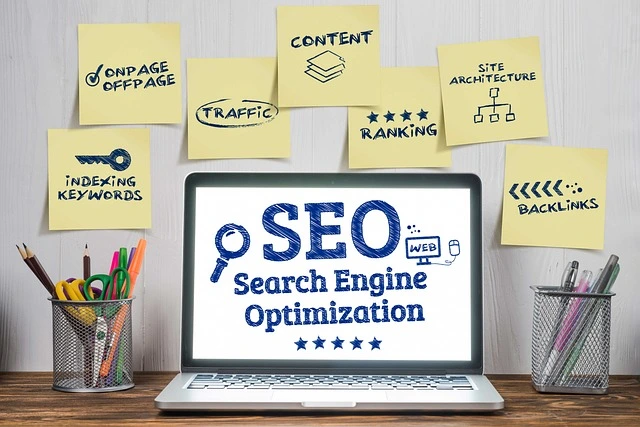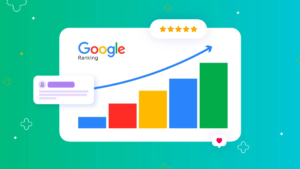Search Engine Optimization (SEO) is crucial for driving traffic, improving rankings, and increasing the visibility of a website. However, even seasoned marketers and webmasters can fall into common SEO traps that harm their site’s performance. To help you optimize your strategy and avoid these pitfalls, we’ll discuss common SEO mistakes and how to avoid them.
1. Ignoring Mobile Optimization
Mobile optimization is no longer optional; it’s essential. With over half of all web traffic coming from mobile devices, Google has adopted mobile-first indexing, which means it primarily uses the mobile version of a site for ranking and indexing. Websites that aren’t mobile-friendly risk losing both rankings and traffic.
How to Avoid It:
- Use responsive design to ensure your site adapts to different screen sizes.
- Test your site’s mobile performance using tools like Google’s Mobile-Friendly Test.
- Optimize loading times for mobile by compressing images and minimizing unnecessary scripts.
2. Neglecting Page Speed
Page speed is not only a critical user experience factor but also a ranking signal in Google’s algorithm. A slow-loading site can increase bounce rates, decrease engagement, and negatively impact your SEO efforts.
How to Avoid It:
- Use Google PageSpeed Insights to identify and fix performance issues.
- Compress images, leverage browser caching, and minimize JavaScript.
- Consider using Content Delivery Networks (CDNs) to serve your content faster to users globally.
- Optimize code by removing unnecessary whitespace, comments, and unused code.
3. Not Conducting Keyword Research
Keyword research is the foundation of any successful SEO strategy. Many businesses either ignore it or rely on outdated methods, targeting overly competitive keywords or missing out on long-tail opportunities.
How to Avoid It:
- Use tools like Google Keyword Planner, Ahrefs, or SEMrush to find relevant keywords with the right balance of search volume and competition.
- Focus on long-tail keywords to target more specific search intents.
- Regularly review and update your keyword strategy based on current trends and user behavior.
4. Overusing Keywords (Keyword Stuffing)
Keyword stuffing is the practice of overloading a webpage with keywords in an attempt to manipulate rankings. Not only does this make your content unreadable, but it can also result in penalties from search engines like Google, as this is considered a black-hat SEO tactic.
How to Avoid It:
- Focus on natural keyword integration. Use your target keywords in strategic places like titles, meta descriptions, headers, and within the content, but avoid overuse.
- Prioritize semantic keywords (related terms and phrases) to improve relevancy without repeating the same keywords.
- Write for your audience first, ensuring that the content reads naturally and offers value.
5. Ignoring On-Page SEO
On-page SEO involves optimizing individual web pages to rank higher in search results. Ignoring on-page SEO elements like meta tags, headers, and alt text can lead to missed opportunities for ranking.
How to Avoid It:
- Optimize your title tags and meta descriptions with relevant keywords while keeping them concise and engaging.
- Use header tags (H1, H2, H3) to structure your content, making it easier for both users and search engines to navigate.
- Ensure all images have descriptive alt text, which helps search engines understand the content of the images and improves accessibility.
6. Not Having a Clear Internal Linking Structure
Internal linking helps search engines understand the hierarchy and relevance of your website’s content. Poor internal linking can result in orphan pages (pages without any links pointing to them), which makes it difficult for search engines to crawl your site effectively.
How to Avoid It:
- Create a logical and user-friendly internal linking structure.
- Use anchor text that clearly describes the linked content.
- Regularly audit your website to identify and fix any broken links or orphaned pages.
7. Failing to Optimize for Local SEO
For businesses that rely on local customers, failing to optimize for local SEO is a critical mistake. Local SEO helps your business appear in location-based searches, which is vital for driving in-person visits and calls.
How to Avoid It:
- Claim and optimize your Google My Business listing with accurate information, photos, and customer reviews.
- Include location-specific keywords in your content, meta tags, and headers.
- Encourage customers to leave positive reviews on Google and other review sites.
8. Publishing Low-Quality Content
Content is the backbone of SEO, but quality is more important than quantity. Publishing thin, duplicate, or irrelevant content can harm your SEO rankings. Google’s algorithms, like Panda, penalize websites that prioritize quantity over quality.
How to Avoid It:
- Focus on producing high-quality, valuable content that answers users’ queries or solves their problems.
- Avoid duplicate content by ensuring every page offers something unique.
- Keep content fresh by regularly updating old posts to maintain relevance.
9. Not Building Quality Backlinks
Backlinks (links from other websites to yours) remain one of the most important ranking factors in SEO. However, focusing on quantity over quality or engaging in manipulative link-building practices can hurt your rankings.
How to Avoid It:
- Prioritize earning high-quality backlinks from reputable websites in your industry.
- Engage in guest posting, but ensure that the content is valuable and relevant to the audience.
- Avoid spammy link-building techniques like buying links, which can result in penalties from search engines.
10. Not Using Analytics to Track SEO Performance
One of the biggest mistakes in SEO is failing to measure and adjust your strategy based on performance data. Without tracking your website’s analytics, it’s impossible to know what’s working and where improvements are needed.
How to Avoid It:
- Use Google Analytics and Google Search Console to monitor traffic, rankings, click-through rates, and other key metrics.
- Set up conversion tracking to measure how well your SEO efforts are driving results like sales or leads.
- Regularly analyze your data and adjust your strategy based on insights gained from user behavior and performance trends.
11. Not Optimizing for Voice Search
Voice search is becoming increasingly popular, thanks to the rise of smart assistants like Siri, Alexa, and Google Assistant. Many businesses fail to optimize their content for voice search, missing out on a growing traffic source.
How to Avoid It:
- Focus on conversational, long-tail keywords that reflect how people speak, not just how they type.
- Create FAQ-style content that answers common user questions directly.
- Ensure your website is optimized for mobile, as most voice searches are conducted on mobile devices.
12. Ignoring User Experience (UX)
SEO isn’t just about keywords and links; it’s also about providing a great user experience. If users find your site difficult to navigate, they’re likely to leave quickly, which increases bounce rates and negatively affects rankings.
How to Avoid It:
- Focus on clear navigation, fast load times, and an intuitive site layout.
- Make sure your site is easy to use on both mobile and desktop devices.
- Regularly test your website’s usability and make improvements based on user feedback.
Conclusion
SEO is a complex, ever-evolving field, and avoiding common mistakes is crucial to maintaining strong rankings and growing your online presence. By focusing on the user experience, conducting proper keyword research, optimizing for mobile and page speed, and producing high-quality content, you can avoid these SEO mistakes and create a sustainable SEO strategy. Regular audits, data analysis, and staying updated on SEO best practices will keep your website competitive in the ever-changing digital landscape.
FAQs
1. What is the most common SEO mistake?
One of the most common SEO mistakes is ignoring mobile optimization, which can negatively impact rankings and user experience.
2. How can I avoid keyword stuffing?
To avoid keyword stuffing, use keywords naturally and focus on semantic keywords and relevant variations that fit contextually within your content.
3. Why is page speed important for SEO?
Page speed is crucial for SEO because slow-loading sites lead to high bounce rates and provide a poor user experience, which affects search engine rankings.
4. What’s the best way to improve local SEO?
Optimize your Google My Business listing, use location-specific keywords, and encourage customer reviews to improve local SEO.
5. How do backlinks impact SEO?
High-quality backlinks from authoritative websites boost your SEO by signaling to search engines that your site is reputable and relevant.







